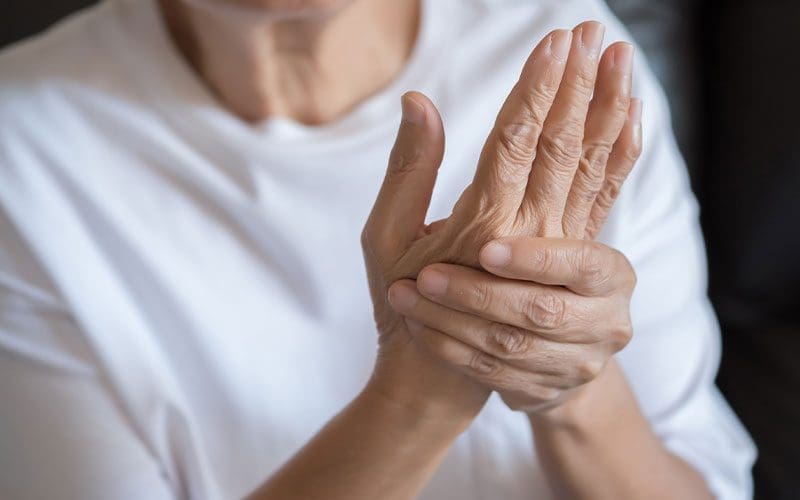
Published: September 26, 2018
Rheumatoid Arthritis
Understanding Rheumatoid Arthritis
Rheumatoid arthritis (commonly known as RA) is considered by many as one of the most disabling types of arthritis. The positive news is that the outlook has improved greatly for people with newly diagnosed RA. Even though RA remains a serious disease and one that can vary widely in symptoms and outcomes, advances in treatment have made it possible to stop or slow the progression of joint damage. Rheumatologists now have many new treatments that target the inflammation that RA causes.
What is Rheumatoid Arthritis?
RA is a chronic disease caused by a faulty immune system and causes pain, stiffness, swelling, and limited motion/function of many joints. While RA can affect any joint, the small joints in the hands and feet tend to be involved most often. Inflammation can affect organs as well.
What causes Rheumatoid Arthritis?
RA is an autoimmune disease, which means certain cells of the immune system do not work properly and start attacking healthy tissues. Although the cause of RA is not known, research provides a better idea of what makes the immune system attack the body and create inflammation. In RA, the focus of the inflammation is in the synovium; the tissue that lines the joint. Immune cells release inflammation-causing chemicals. These chemicals can damage cartilage (the cushion between joints) and bone.
Who gets Rheumatoid Arthritis?
RA is the most common form of autoimmune arthritis, affecting more than 1.3 million Americans. Of these, about 75% are women. In fact, 1–3% of women may get RA in their lifetime. Although RA can begin at any age, it most often begins between the ages of 40 and 60.
What are the symptoms of Rheumatoid Arthritis?
The biggest sign of RA is stiffness, particularly in the morning. Stiffness may last one to two hours, however, can persist throughout the entire day. Few other arthritic diseases result in this type of stiffness, so this symptom is an indicator that it may be RA. Other signs and symptoms of RA include loss of energy, low fever, loss of appetite, dry eyes or mouth, and firm lumps beneath the skin.
Things to remember
The latest treatments are effective. Early treatment can control joint pain, swelling, and lessen joint damage. Studies show that early treatment will help you keep an active lifestyle. It’s also important to see a Rheumatologist to help diagnose and manage your disease. Early detection is vital and will rule out diseases that mimic RA as well as unnecessary testing and treatment.
If you identify with one or more of the following symptoms, you may suffer from an autoimmune disorder such as rheumatoid arthritis, osteoarthritis, or fibromyalgia:
- Persistent, severe pain in joints, muscles, or bones
- Morning stiffness
- Moderate to severe fatigue
- Decreased energy
- Muscle spasms or tightness
- Joint swelling, redness, or warmth
- Deformed joints
- Reduced range of motion
- Muscle weakness